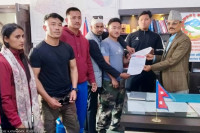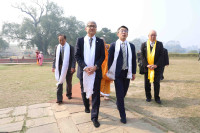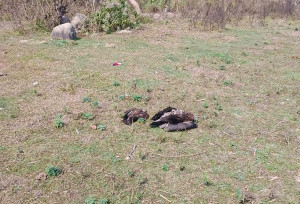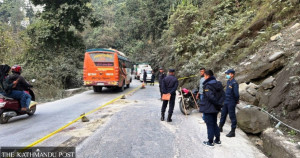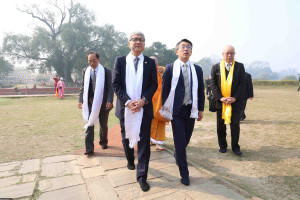Lumbini Province
Child marriage, child labour still remain major challenges in Rolpa
The local level had made efforts from running awareness campaigns to introducing mid-day meals in government schools in a bid to ensure child rights.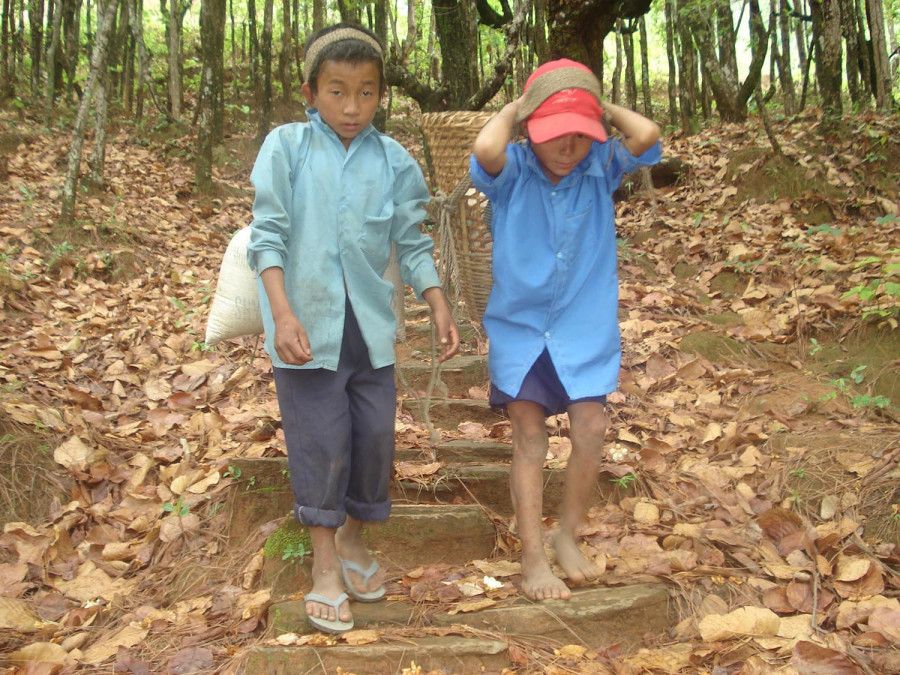
Kashiram Dangi
Since the election of the local representatives in 2017, the local level had made efforts from running awareness campaigns to introducing mid-day meals in government schools. But despite these efforts, there has not been much improvement in eradicating practices such as child marriage and child labour, and in retaining children at school.
Shanta Kumar Oli, chairman of the Tribeni Rural Municipality, said the local government launched an awareness drive to end child marriage and child labour soon after the local level elections but the campaign had not been fruitful.
“The rural municipality and several social organisations spend around Rs 30 million annually for child rights and children’s education. However, we haven’t been able to stop child marriage and child labour completely,” said Oli.
The tradition of parents getting their children to marry at a young age is still prevalent in rural areas, says Oli. “Poor economic condition drives young children to work for the livelihood of their families. This is also why the district hasn’t been able to end child labour,” he said.
According to a recent study carried out by Tribeni Rural Municipality, 227 children were involved in child labour in the local unit last fiscal year. The study shows that as many as 68 underage couples got married in 2019-20. Child marriage has been illegal in Nepal since 1963. Two years ago, the government increased the legal age for marriage from 18 to 20 years.
There are 12 secondary schools, 28 basic schools and 37 child development centres in Tribeni Rural Municipality. According to data at the local level, 2,299 students have been enrolled in various schools this year. The rural municipality does not have comprehensive data on the total number of school-going children in the rural municipality.
According to the rural municipality, 205 school-age children were found out of school in the current academic year. The local unit, with the help of Save the Children and Human Rights and Environmental Education Centre, initiated a campaign to bring those children to school.
“We have brought almost all the children to school again. Only 12 children are deprived of education now. Efforts are on to bring them into the school system too,” said Pramila Budha, an officer at one of the social human rights organisations working in the region.
Thaman and his siblings Laxmi and Tara Dangi of Garigaun could not continue their studies after their father died and their mother remarried. The Dangi siblings, who have been living with their elderly grandparents, joined a school in the municipality a few weeks ago as motivated by one of the social organisations.
“I could not send them to school after the death of their father. They again started going to school with the help of the rural municipality and the social organisations,” said Dil Bahadur Dangi, the 65-year-old grandfather of the trio.
The situation of the children is almost the same—if not worse—in other local units as well. All 10 local councils in the district expressed their commitment to working towards educational reforms and ensuring child rights for every child in their respective wards. The representatives of the local units gathered at the district headquarters a few days ago and signed a 15-point commitment to stopping child marriage and child labour.
According to the International Labour Organisation, Nepal still has about 1.6 million children aged 5 to 17 years engaged in labour.




 20.81°C Kathmandu
20.81°C Kathmandu


